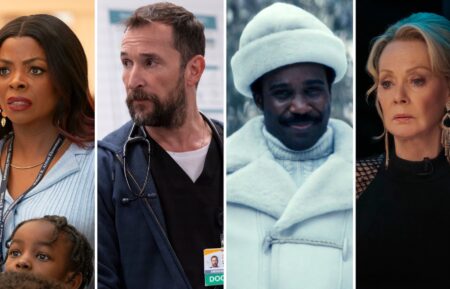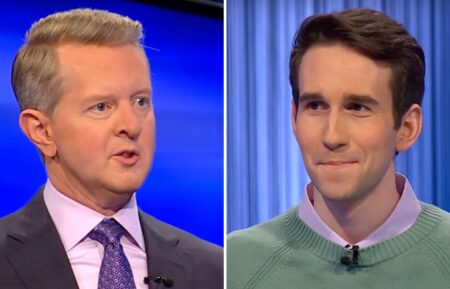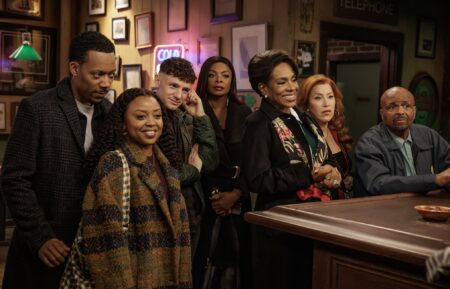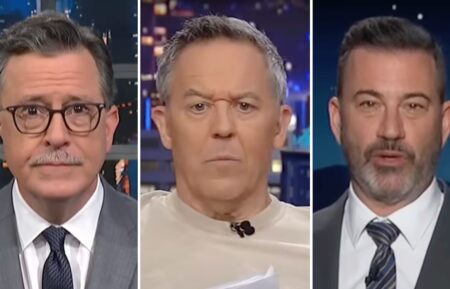8 Things We Learned About Homeland at PaleyFest
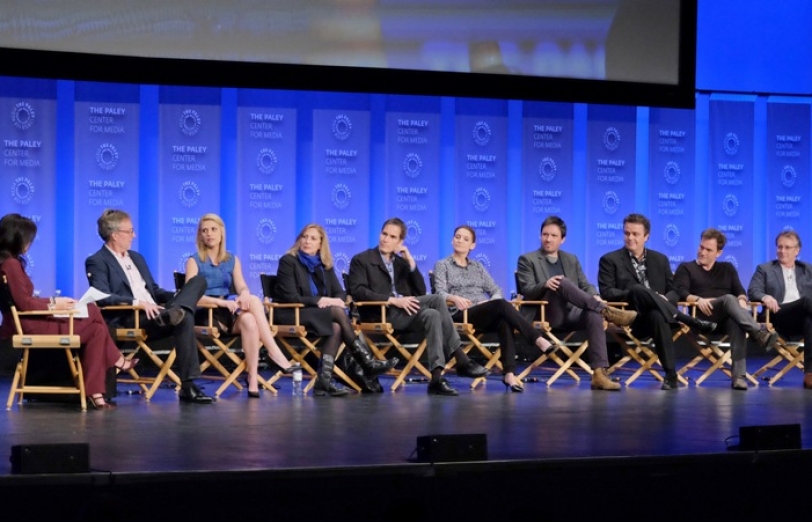
This year’s PaleyFest LA, the Paley Center for Media’s annual series of TV show panels, kicked off Friday with a revealing look at Showtime hit Homeland. Clare Danes, who plays CIA intelligence officer Carrie Mathison, was there, along with Maury Sterling (Max), but the rest of the stage was filled with the behind-the-scenes creative team, including executive producer and showrunner Alex Gansa. (And that may be just as well, considering that typically these sessions are dominated by the writer/producers anyway.) The focus was of course on Homeland‘s fourth season, which centered around that ill-fated Pakistan drone strike, Saul’s abduction by terrorist Haissam Haqqani, and Carrie’s botched attempts at motherhood and romance. The Talk‘s Julie Chen moderated the Q&A session that also live-streamed on Yahoo Screen.
Season 5 will jump ahead two and half years.
Plus, there’s a new setting as well. “We are going to be shooting the show in Europe,” Gansa said, “probably in Germany.” Of course, taking into account that South Africa doubled as Pakistan for the fourth season, Chen then asked, “You’re shooting in Europe, but what is it supposed to be?” That question remained unanswered until later in the panel when Gansa mentioned that currently the writers are “all involved in a bit of immersive history of Germany and Europe right now.” But the biggest tease came when Gansa revealed that “Carrie will no longer be an intelligence officer.” Yeah, let’s see how long that lasts. (Next season, according to network execs in attendance, will premiere on September 26.)
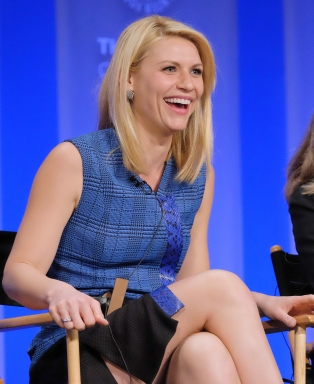 Most of Homeland‘s writing staff didn’t want Carrie and Quinn (Rupert Friend) to hook up.
Most of Homeland‘s writing staff didn’t want Carrie and Quinn (Rupert Friend) to hook up.
And it appeared that the divide was right down gender lines with the guys reeling against it. “In a thriller about CIA operatives,” said exec producer Alex Cary, “it always felt a little bit like ‘high school romance’ stuff to me conceptually.” But fellow EP Meredith Stiehm was a fierce advocate for it. “I really felt there was something in the air from day one,” she said.
Max (Maury Sterling) would have been dead if it wasn’t for showrunner Alex Gansa’s wife.
When Chen asked Sterling why Max was saved from the embassy ambush’s body count while Fara (Nazanin Boniadi) was not, he replied that he had “heard rumors” that the exec producer’s wife deserves credit. Gansa confirmed this and added that it was also about “what would be the most powerful scene after who died. Is the more powerful scene Carrie sitting with Max, or is the more powerful scene talking Carrie sitting with Fara about Max dead?” Clearly, it was the former.
The pivotal “tarmac prisoner exchange” scene with Saul (Mandy Patinkin) was brutal to film.
First, director Lesli Linka Glatter had to be very careful what angles she chose to shoot. “If looked over there, you were in Africa,” said Linka Glatter, “if you looked down here, five blocks, you were in Pakistan.” Second, they had more than a few interruptions.
“On this airfield,” said exec producer Patrick Harbinson, “we had to stop shooting every two or three hours because a little plane that was towing a banner advertising a Cape Town strip club had to refuel.” Third, it took a while for the crucial moment between Carrie and Saul, when she’s trying to persuade him not to blow himself up, to “click.” Finally, Harbinson recalled, “suddenly some switch flipped in Mandy and he just turned into a different man.” And lastly, Danes had just recovered from a pretty awful bout of stomach flu. “It was bad,” she said. “I was leveled. And I was still quite feeble when I did actually go back to work and I found myself on that blistering hot tarmac.”
Dar Adal (F. Murray Abraham) conspired with last season’s big bad, Haissam Haqqani (Numan Acar), for a very good reason—at least to him.
Said Gansa, “Dar Adal doesn’t want another political appointee to run the intelligence agency, like Lockhart, Tracy Letts character. He wants a career intelligence officer to be in charge.”
Carrie could’ve been an even worse mother.
The infamous scene in which Carrie considers drowning her baby could have been even more extreme, but the post-production process actually softened it. “The camera’s point of view was the baby’s point of view,” Gansa explained, “and the camera went underwater and stayed there for 15 seconds at which point any sympathy for Carrie would be completely gone. So what we did was the camera goes underwater for a split second and then we reversed the film so the camera comes right back up out of the water.” So, yes, Carrie was reprehensible in that brief second, just not super-reprehensible.
Clare Danes is very convincing at her job.
At least two times during the panel, Chen referred to Danes as “Carrie.” The second time she even exclaimed, “Oh my god, I did it again! She’s that good!” And then to top it off, an audience member committed the same flub as well. But, to give Chen benefit of the doubt, there are four common letters shared by the two names.
Danes is very aware of the notorious “Carrie cry face,” as it’s called by the show’s fans.
If you watch Homeland with any regularity, then you know to expect a least one “Carrie cry face” moment—eyes watering, chin quivering—per episode. And one audience member actually brought up that that phenomenon and the phrase itself to Danes who, good-naturedly, acknowledged this tendency: “I swear to god,” she said with a laugh, “it’s just what my face does! That’s just how I cry!” (Director Linka Glatter was also quick to jokingly point out that she “never [gives] her that note on set.”) Danes also recalled that her “cry face” goes as far back as her earliest days as an actress. “I remember on My So Called Life,” she said of her first major acting role, “they wrote it into an episode, because even then, that’s just how I cry.”


